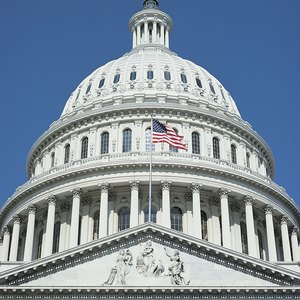
Lobbying is the attempt to advocate an agenda and to influence legislators and other policymakers to support that agenda. Lobbying is protected by the redress clause of the First Amendment to the U.S. Constitution. It is illegal for a lobbyist to pay or to give gifts to a member of Congress in return for his or her vote. However, there are many ways in which lobbyists use gifts or campaign contributions to sway legislators' votes.
Full Disclosure
The Federal Election Campaign Act and the Bipartisan Campaign Reform Act of 2002 set limits on the direct contributions that lobbying organizations or individuals can give to federal political candidate campaigns. However, many lobbyists work around this by paying for congress member trips, expensive dinners and other gifts or perks. There is ongoing debate regarding what limits should be placed on such gifts. Under the Lobbying Disclosure Act of 1995, lobbyists are required to register with the Senate and House of Representatives and disclose the circumstances of any meetings they have with members of Congress six times per year.
References
- Santa Clara University: Lobbying Ethics
- Public Affairs Council: Explaining Lobbying to External and Internal Audiences
- Federal Election Commission: Quick Answers to PAC Questions
- OpenSecrets.org: Lobbying Database
- Statista. "Total lobbying spending in the United States from 1998 to 2019." Accessed April 10, 2020.
- National Conference of State Legislatures. "Lobbyist Registration Requirements." Accessed April 10, 2020.
- United States Senate. "Lobbying Disclosure Act of 1995." Accessed April 10, 2020.
- GovTrack. "Historical and Statistical Comparison, Bills by Final Status." Accessed April 10, 2020.
- Statista. "Number of registered active lobbyists in the United States from 2000 to 2019." Accessed April 10, 2020.
Writer Bio
Dell Markey is a full-time journalist. When he isn't writing business spotlights for local community papers, he writes and has owned and operated a small business.

